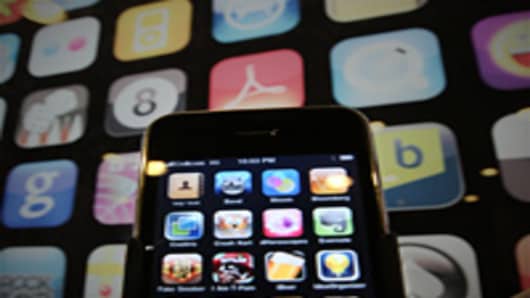“If you bring in two or three loyal customers because of something in the app, then you've paid for the app time and time again,” said Jason Jaynes, Apptive’s co-founder and vice president of products and marketing.
But not so quick, others say. Some experts warn that spending money on a mobile app may not be the best strategy for small businesses, which must deploy their limited resources wisely.
Searching for apps has become increasingly difficult now that there are more than 1.1. million apps to sort through across the iPhone, Android, Blackberry and Windows smartphones. That means it will be harder for consumers to find small business apps, since they tend to be niche and local and not likely to land on top charts alongside, say, Angry Birds. And after downloading an app, 26 percent of customers don’t use it a second time, according to an analysis by Localytics.
Small businesses also need to be aware of the additional costs of developing a mobile app, such as paying to keep it updated, or adding new or more complex features. “The hidden costs are many,” said Saju Thomas, product manager at Picksie.com, a location-based entertainment guide.
The better bet is to develop a mobile website, said Carrie Chitsey, CEO of mobile marketing company 3Seventy. A mobile website is designed for the smartphone, containing just the information that someone on the go will need. With 61 percent of smartphone owners using their phones to search for local businesses, small businesses need to have a mobile website ready to go, she said. 3Seventy charges as little as $100 to build a mobile website, but developing an app can costs $1,500 for a basic one to more than $30,000 for a custom one.
Ultimately, small businesses have to weigh what they hope to get out of developing a mobile app.
For Young, Squeeze In’s smartphone app is just part of its larger marketing strategy. Squeeze In, which operates three restaurants in Reno, Nev., and Truckee, Calif., is also on Facebook, Foursquare, Twitter, Instagram and Pinterest, among other popular social and mobile services.
“It's one piece of our social strategy,” Young said. “Each one has become a plank in our platform.”
Email us at SmallBiz@cnbc.com
Follow us on Twitter @SmallBizCNBC



